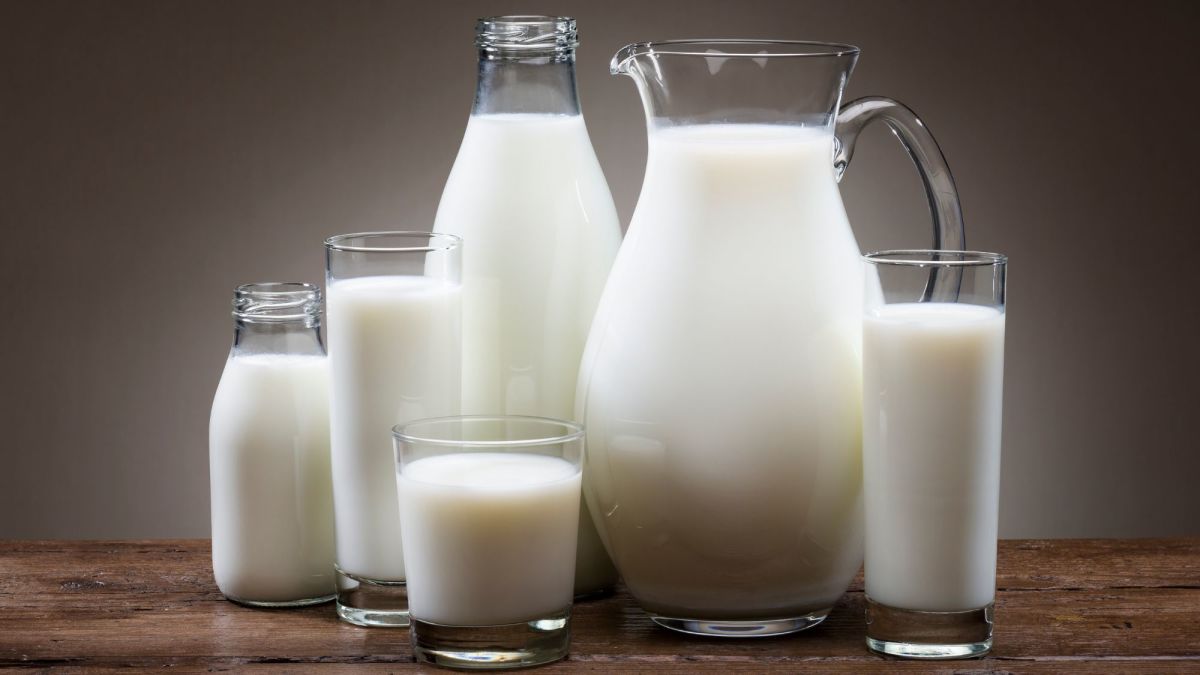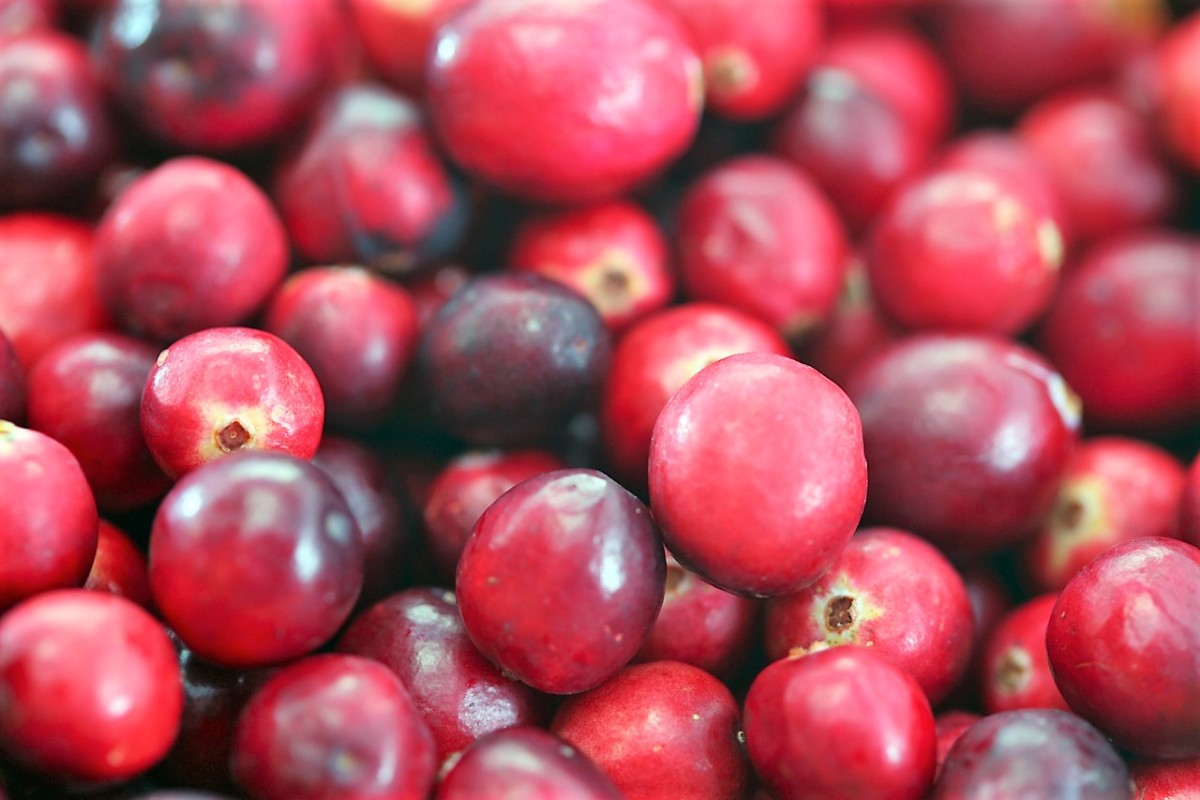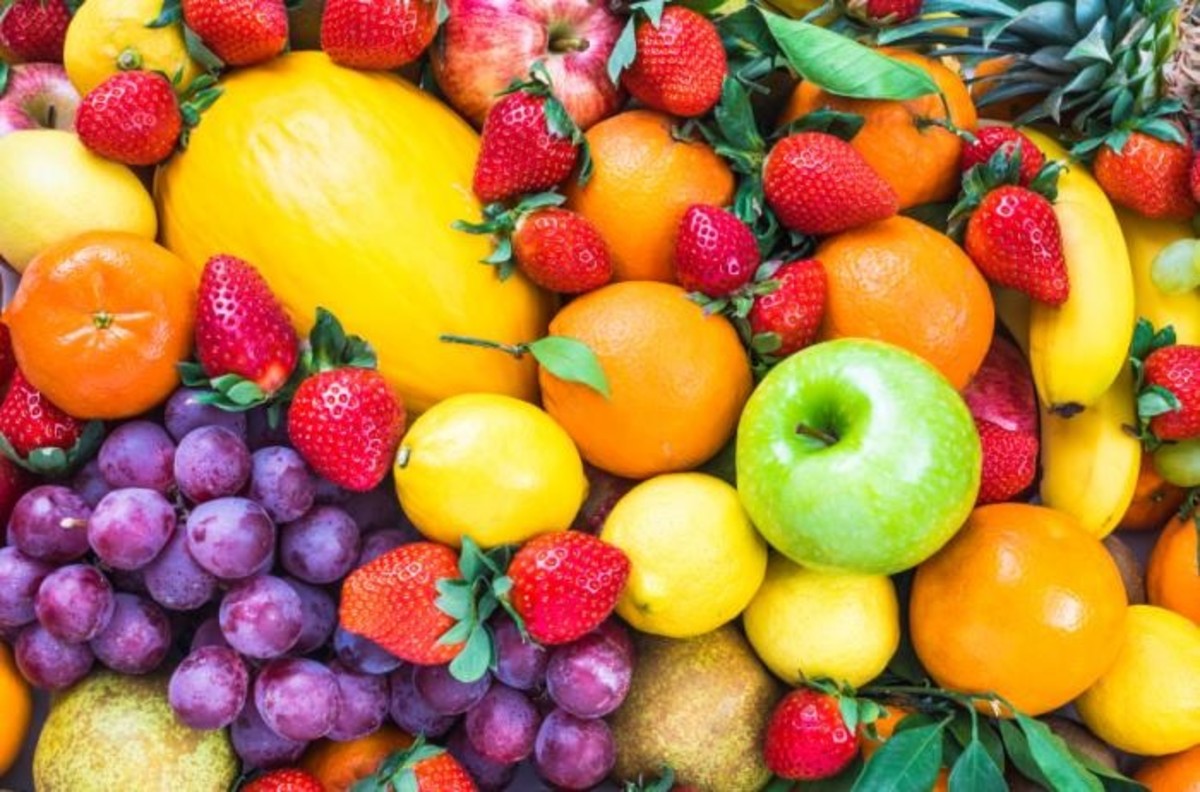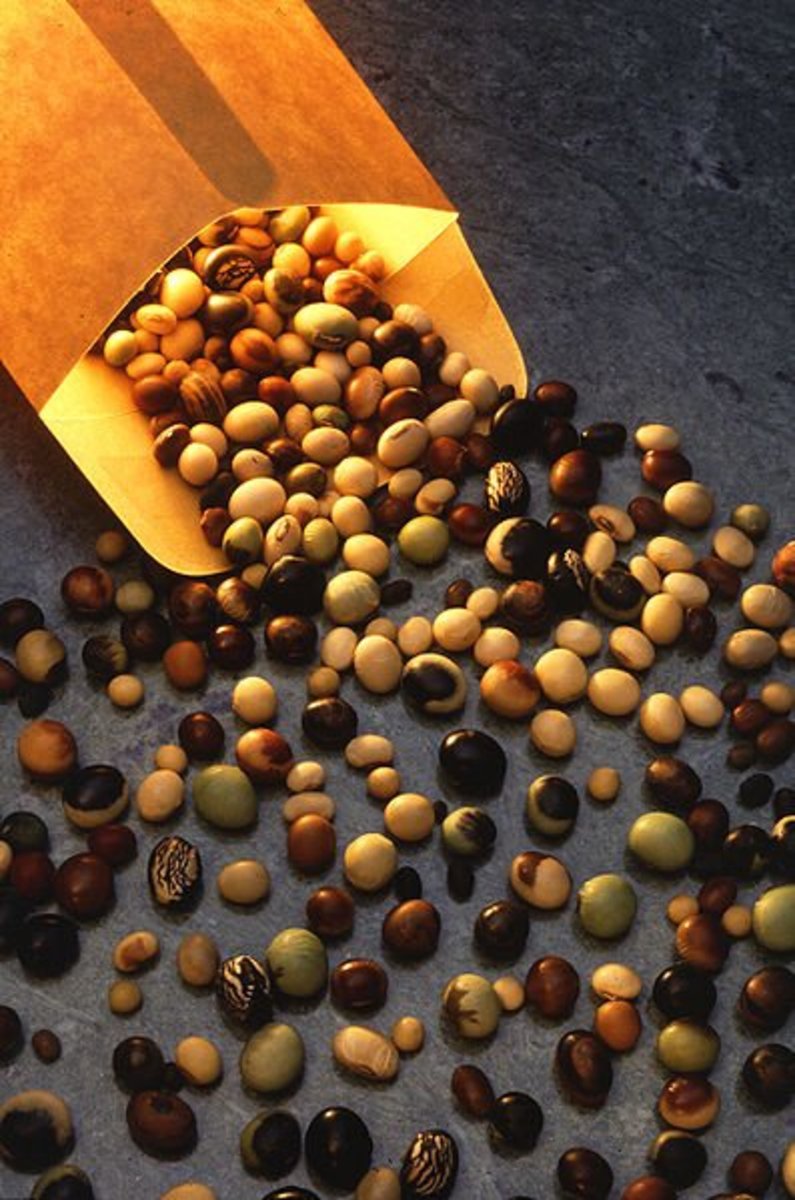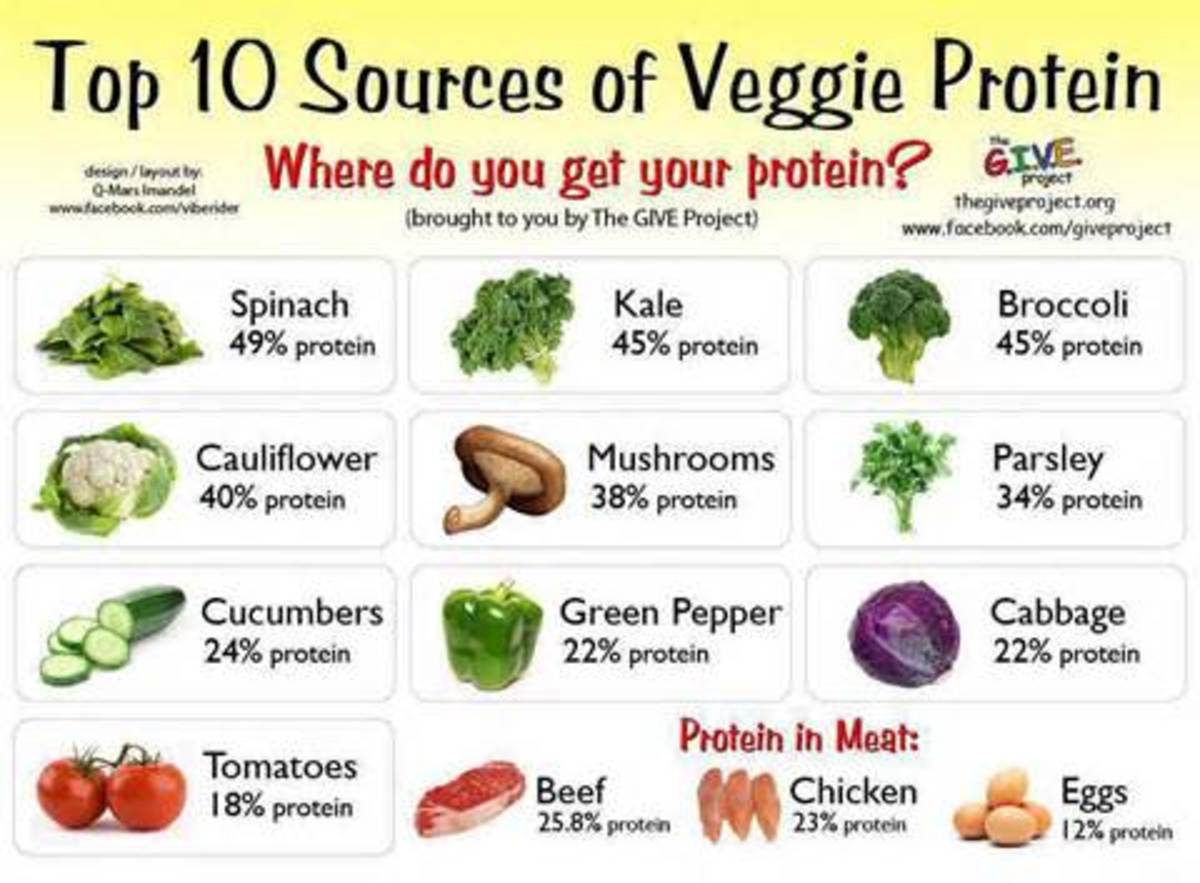Soy: Benefits and Possible Dangers
You see and hear it everywhere – on TV, in magazines and newspapers, and even on the radio: why certain foods and dietary supplements are good for you. Some make amazing claims. If, however, you take the time to research some of these super substances, you’ll find that many claims are exaggerated, and some are blatantly misleading. In fact, some of these popular supplements can do more harm than good.
For the last few years, we’ve been hearing and reading a lot about soy. Studies show numerous health benefits from consuming soy, but there also the negative points that you might not hear. For a large group of the population, soy offers substantial health benefits, but it’s not for everyone.
Benefits of Soy
Soy is naturally low in saturated fats and contains no cholesterol. It's high in protein, essential fatty acids, and fiber. According to the FDA, "25 grams of soy protein a day, as part of a diet low in saturated fat and cholesterol, may reduce the risk of heart disease."
Soy is low in fats and has no cholesterol, and it’s high in protein and fiber. According to the FDA, consuming 25 grams of soy each day could reduce the risk of heart attack and other cardiovascular incidents. It lowers LDL cholesterol – the “bad” cholesterol, and it helps raise the “good” cholesterol – HDL. By eating soy on a regular basis, you can also lower your blood pressure naturally and decrease levels of triglycerides. Soy can also help blood vessels maintain their elasticity.
Soy can be a valuable ally in your weight-loss goals, too. Because it’s high in dietary fiber and protein, soy-based foods fill you up with relatively few calories and regulate your insulin levels. You’ll stay satisfied longer and won’t be tempted to snack on high-calorie foods.
Studies also suggest that children who eat soy regularly develop fewer diseases as adults. These include high cholesterol, heart disease, and even several kinds of cancers. Soy’s inherent fiber aids in digestion, and children who eat soy on a regular basis have fewer problems with constipation.
A good way to add soy to your child’s diet is with soy nut snacks and soy nut butter. Even if you son or daughter is allergic to peanuts and peanut butter, chances are good that he or she can tolerate the soy products. And for kids and adults who are lactose intolerant or allergic to milk, soy milk and soy milk products provide a good alternative. It’s high in protein, calcium. And vitamins A and D.
Soy is also a real body builder. It’s rich in antioxidants and high in protein, so it helps the body repair and maintain skin, hair, nails, ligaments, and tendons. It’s often added to skin creams to help reduce the appearance of wrinkles and fine lines. It can even help “even out” the skin’s coloring and minimize spots.
More than twenty reputable studies show that the protein in soy can help reduce or eliminate the symptoms associated with menopause, peri-menopause, and post-menopause. In Asian nations, where soy consumption is high, less than 10% of middle-aged women suffer from hot flashes. Compare this to almost 90% of the middle-aged women where soy is seldom eaten or is consumed in small amounts.
Consuming soy also plays an important role in maintaining healthy kidneys and a healthy prostate gland. It’s also key to digestive health, especially in maintaining a healthy colon.
Possible Negative Effects
One problem with the consumption of soy is the form in which it's eaten. In most Asian countries, for example, where soy is widely consumed, it’s usually fermented before being eaten. For instance, it’s the fermented form that’s used in popular dishes like natto, miso, and tempe. The fermented soy contains healthy probiotics that aid digestion and enhance overall health.
In most Western nations, including the United States, many soy-based products are made with large amounts of unfermented soy. For example, soy snacks and soy shakes might contain more than 20 grams of unfermented soy in a single serving.
There’s a danger that could lurk in those innocent-looking beans, too. Consider how soybeans are processed. They don’t come from the field ready to eat. They have to go through a bathing process, where they’re soaked in alkaline. Then they’re placed in an aluminum tank, where they’re soaked in acid. This presents a problem in itself – some of the aluminum leeches in to the beans. After their acid bath, the beans are returned to an alkaline soak. Next, the resulting bean curd is dried at high temperatures, resulting in the formation of harmful substances. After all this, flavor enhancers like MSG are added to make the soy more edible. In addition, almost all soy beans have been genetically altered and contain an extremely high amount of pesticides.
One substance found in soybeans is trypsin, which can inhibit growth in young animals. Adolescent rats that were fed trypsin never achieved normal growth. And though the fermentation process of the beans somewhat neutralizes the inherent growth inhibitors, it does not eliminate them completely.
Soybeans are also high in phytic acid, another questionable substance. Research shows that this acid blocks the absorption of essential minerals, especially iron and copper. Phytic acid can also block the absorption of calcium and magnesium, important electrolytes necessary to regulate blood pH, nerve and muscle function of the body, and hydration. Furthermore, phytic acid partially blocks the absorption of zinc. Why is this important? Zinc is needed for normal brain function and normal nervous system function. It also plays a key role in maintaining normal glucose levels and a healthy reproductive system. And while all beans and legumes contain phytic acid and other phytates, none of the other varieties have the high amount found in soybeans.
In addition, soy contains high levels of goitrogens that depress thyroid function. Studies show that even small amounts of soy protein contain more than enough of these goitrogens to cause a significant effect on thyroid function, especially in pre-menopausal women. Even after women in the study abstained from consuming soy for three months, the negative effects lingered.
Soybeans have also been linked to deadly pancreatic cancer. How? Theprotein molecules in the beans that inhibit trypsin can cause the pancreas to enlarge and perhaps ultimately lead to cancer.
Soy also contains haemagglutinin, a substance that increases the clumping action of red blood cells. This clumping can result in fatal blood clots in the form of aneurisms, strokes, and heart attacks.
When the soybeans are spray-dried and processed, nitrates and lysinoalanine form. These are both powerful carcinogens, and lysinoalanine is a virulent toxin.
Soybeans and soy products are rich in isoflavones. These substances have the ability to mimic estrogen in the body. Laboratory rats fed isoflavones entered puberty at a much earlier age than normal. The concern for humans is the effect on human babies who are given soy-based formula because of allergies to regular milk-based formulas. According to scientific studies, feeding a baby a regular diet of soy milk is like giving the infant a daily dose of five birth control pills. Probably because of these estrogen-like isoflavones, soy has also been linked to breast cancer.
Based on the evidence suggesting the inherent dangers of feeding soy to young mammals, it’s ironic that textured soy protein is a main ingredient in school lunch programs and in government-funded food giveaway operations. You're probably consuming it regularly without even knowing it – it’s a common ingredient in diet drinks, fast foods, and many baked goods.
People Who Shouldn’t Eat Soy
According to Dr. Miles Hassell of the Providence Cancer Center, "Soy foods may contain selective estrogen receptor modulators, which influence the activity of estrogen in the breast and potentially could have an adverse effect in breast cancer survivors." He recommends that these women totally avoid concentrated soy extracts.
Those who have hypothyroidism and are on thyroid hormone replacement medications might need to avoid soy products, also. Soy has the potential to decrease the beneficial effects of the drugs. Infants and children with hypothyroidism are especially susceptible and should never consume products with concentrated soy extracts.
Australia’s Cancer Council advises men with prostate cancer to limit their consumption of soy products. Research shows that consuming high levels of soy inhibits the medications used to treat prostate cancer.
To Take or Avoid?
If you're trying to decide whether or not soy would be benefit your overall health, consult your physician. Your primary caretaker knows your medical history and conditions and will be able to guide you in a safe decision.
Read more about health:
- Cooking with textured soy protein
Many people become vegetarians for health reasons or for ethical reasons. Some miss the hearty stick-to-your-ribs taste and texture of real meat, however, while trying to maintain a strict vegan diet. By... - Menopause: What Your Doctor Might Not Tell You! Doctor Video Included
I know menopause. I suffered through it with my mother, and Im just now coming out of it on the other side, myself. Im writing this in an effort to help other women who might be going through what my... - Improving Fertility without Drugs: 25 Tips
Fertility rates in the US have sharply declined over the last few decades. Thousands of couples today have trouble conceiving. Doctors are not completely sure what has caused the decline, but several...



